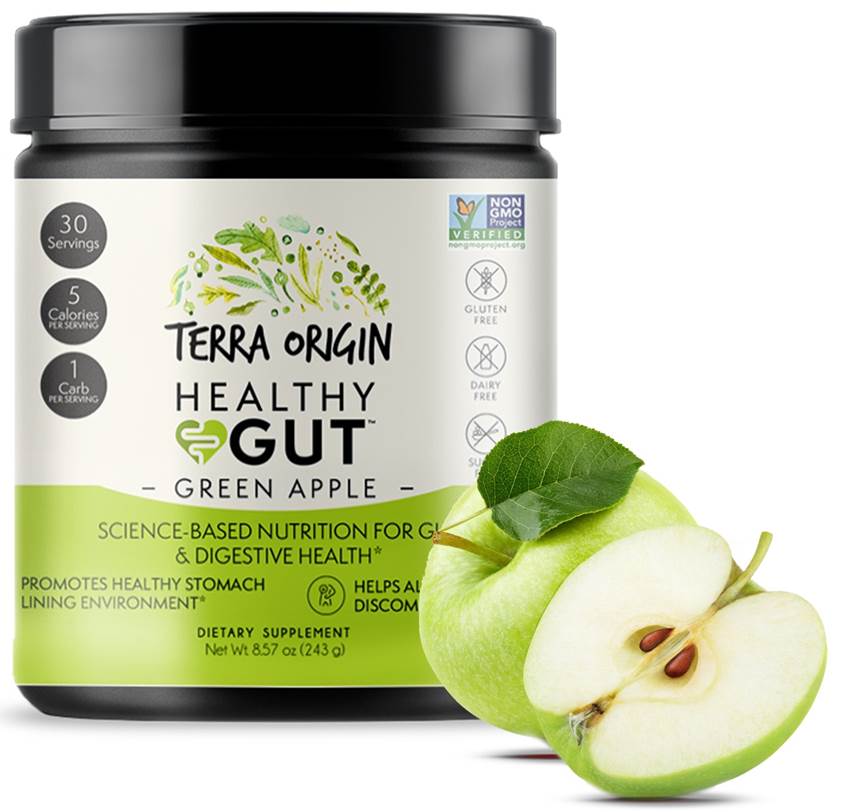Finding a Gut Health Supplement That Works: Your Guide to Better Digestion
Finding a Gut Health Supplement That Works: Your Guide to Better Digestion
Blog Article
Discover the Trick to Digestion and Resistance With Gut Health Assistance

Comprehending Intestine Health
Understanding intestine health is critical for general health, as it plays a significant function in digestion, resistance, and even mental wellness. The gut, making up the gastrointestinal system, is accountable for damaging down food, soaking up nutrients, and removing waste. A well balanced gut atmosphere makes certain efficient digestion, permitting the body to make use of nutrients effectively.
In addition, digestive tract wellness significantly impacts the immune system. The digestive tract houses a significant portion of the body's immune cells, and a healthy and balanced intestine can aid fend off pathogens and decrease inflammation. Interruptions in intestine wellness can lead to an overactive immune response, potentially adding to autoimmune problems and allergies.
Furthermore, the digestive tract is commonly described as the "2nd brain" as a result of the gut-brain axis, an intricate interaction network connecting the intestine and the mind. This connection influences mood, cognition, and emotional health. Concerns such as dysbiosis, identified by an imbalance in gut bacteria, have been related to psychological wellness problems, consisting of anxiousness and clinical depression.
The Digestive Tract Microbiome Explained
The intestine microbiome, a diverse community of microbes staying in the stomach tract, plays a pivotal duty in preserving gastrointestinal health and general well-being. Making up trillions of bacteria, infections, fungi, and other germs, this complex ecosystem help in the food digestion of food, the synthesis of vital nutrients, and the guideline of metabolic processes.
Each person's intestine microbiome is special, affected by aspects such as diet, lifestyle, genes, and ecological direct exposures. A balanced microbiome supports optimal digestion by damaging down complex carbohydrates, producing short-chain fatty acids, and promoting the absorption of nutrients. Alternatively, a discrepancy, commonly described as dysbiosis, can lead to digestion conditions, consisting of short-tempered bowel disorder (IBS) and inflammatory digestive tract condition (IBD)
Research has actually demonstrated that a varied microbiome is connected with much better health end results, emphasizing the value of dietary selections in nurturing these microorganisms. Foods rich in fiber, probiotics, and prebiotics, such as fruits, vegetables, and fermented items, can advertise a healthy microbiome. Understanding the gut microbiome is necessary for establishing targeted interventions focused on boosting gastrointestinal wellness and avoiding stomach diseases.

Connection Between Digestion and Resistance
A robust connection exists in between food digestion and resistance, highlighting the essential role of the digestive tract in preserving overall wellness. The stomach tract is home to trillions of microbes that create the intestine microbiome, which considerably influences both gastrointestinal processes and immune actions. This facility environment aids in breaking down food, soaking up nutrients, and supplying important metabolites that sustain immune feature.
When digestion is effective, the digestive tract barrier remains undamaged, avoiding unsafe pathogens from entering the blood stream (gut health supplement). Alternatively, inadequate digestion can result in a discrepancy in the microbiome, leading to dysbiosis, which has been connected to various health and wellness concerns, including inflammatory disorders and autoimmune conditions. About 70% of the immune system resides in the gut-associated lymphoid tissue (GALT), which connects very closely with the digestive tract microbiome. This interaction guarantees that the body immune system can effectively distinguish in between damaging and valuable compounds.
Tips for Supporting Intestine Health
Supporting gut wellness is crucial for keeping both digestion efficiency and a well-functioning body immune system. To cultivate optimal digestive tract health and wellness, consider including a number of useful methods into your day-to-day regimen.
First, focus on hydration. Drinking ample water sustains food digestion and assists keep the mucosal lining of the intestines. Additionally, routine physical activity can enhance intestine motility and advertise a varied microbiome.
Mindful eating practices are likewise essential. Chewing food completely and consuming slowly can help digestion and prevent over-eating, which might worry the digestive tract. Additionally, managing stress with strategies such as reflection, yoga exercise, or deep-breathing exercises can positively affect intestine health and wellness, as stress and anxiety is recognized to disrupt gastrointestinal processes.
Incorporating prebiotics and probiotics into your routine is one more effective strategy. While specific foods will be reviewed later on, comprehending the significance of these components is essential. Prebiotics serve as food for beneficial gut germs, while probiotics introduce real-time beneficial microorganisms.
Lastly, avoid excessive use anti-biotics, as they can disrupt the equilibrium of digestive tract flora. By adhering to these tips, you can considerably add to the maintenance of a healthy gut, which is important for general wellness and vitality.
Foods That Promote Intestine Wellness

Fermented foods, such as yogurt, kefir, sauerkraut, and kimchi, are abundant in probiotics, which are advantageous bacteria that sustain digestive tract vegetations and improve digestion. These foods can assist restore equilibrium in the intestine, especially after antibiotic usage or digestive disruptions.
Along with fermented options, prebiotic foods, such as garlic, onions, asparagus, and bananas, work as nourishment for these probiotics, advertising their growth and task. These soluble fibers sustain digestive tract motility click for info and can alleviate concerns like irregular bowel movements.
In addition, incorporating high-fiber foods, including whole grains, fruits, vegetables, and vegetables, is important for preserving a healthy and balanced digestive tract. Fiber aids in routine defecation and assists prevent digestive system disorders.
Finally, omega-3 fatty acids found in fatty fish, flaxseeds, and walnuts have anti-inflammatory buildings that can better sustain digestive tract health. Emphasizing these foods in your diet can cause a durable digestive system and enhanced immune feature.
Final Thought
Finally, focusing on intestine health and wellness is important for optimizing digestion and improving resistance. A balanced intestine microbiome, affected by nutritional options and way of living elements, plays a vital role in nutrient absorption and inflammation decrease. Incorporating fermented foods, prebiotics, and high-fiber choices, alongside appropriate hydration and stress and anxiety monitoring, can significantly advertise digestive tract wellness. By taking on these techniques, people can support general wellness and vitality, unlocking the potential advantages of a well-functioning stomach system.
Comprehending digestive tract health is important for overall health, as it plays a significant duty in digestion, resistance, and even psychological health and wellness. The gut houses a substantial section of the body's immune cells, and a healthy and balanced digestive tract can aid fend off virus and lower inflammation.Additionally, the intestine is typically referred to as the "2nd mind" due to the gut-brain axis, an intricate interaction network connecting the digestive tract and anchor the brain.A durable try this out connection exists in between digestion and immunity, highlighting the vital role of the intestine in keeping total health and wellness.In conclusion, focusing on digestive tract wellness is necessary for maximizing food digestion and improving immunity.
Report this page